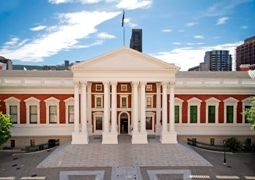
The National Council of Provinces (NCOP) held a two-day Budget and Fiscal Oversight Workshop to determine successes and failures in conducting effective and efficient budgetary and fiscal oversight over the executive.
Speaking on Advancing the Mandate of the NCOP through Effective Budget and Fiscal Oversight yesterday, the Chairperson of the NCOP, Mr Amos Masondo, stated that the NCOP has certain constitutional mandates with the goal of transforming the lives of South Africans. “This workshop seeks to build a shared understanding of the NCOP’s role in utilising oversight and fiscal instruments expressed in a wide range of money-related bills and financial managements instruments that inform NCOP oversight and accountability mandate,” he said.
This is to prevent abuse of public finance and to ensure accountability in how tax-payers’ money is utilised. This workshop will elucidate these oversight instruments to enhance the NCOP’s effectiveness and efficiency of accountability measures over the executive. Mr Masondo added: “One of our critical interventions as NCOP is to ensure that the executive delivers on its policies and the goals that it has set. We have to turn the existing oversight instruments into account to come up with effective strategies and tactics of realising the transformative prescripts of our constitution.”
Participating in the workshop, the Deputy Minister of Finance, Dr David Masondo, spoke on understanding budget processes and intergovernmental relations in South Africa. He gave a broad overview of the fiscal and financial instruments enacted since the inception of the Constitution and the first democratic Parliament that sought to ensure effective and efficient accountability in management of public finances.
In his view, much has been done to establish a world-class public finance management based on prudent economic sustainability, public financial management to bring about transparent budgetary frameworks. He cited the Division of Revenue Amendment Bill, the Medium Term Budget Statement and other money-related Acts as examples of this. These instruments provide the NCOP with oversight ammunition to hold the executive accountable in a manner that equals the role of the Auditor-General, in his view. It can do so by using “departments and entities annual plans and key performance areas reports to hold them accountable”.
He made mention of the fact that the Standing Committee on Finance and Appropriations is constitutionally equipped to ask difficult questions that have an impact on fiscal strategies and South Africa’s economic growth agenda.
Speaking on the Constitutional Framework for Parliamentary Oversight: Understanding Constitutional Role of Parliament in Fostering Fiscal Oversight and Accountability, the University of Cape Town’s Prof Hugh Corder said the Constitution is based on the idea of breaking away from the past. This gave the democratic Parliament a responsibility to be a watchdog of the constitutional prescripts. Making a comparison between the South African Parliament with the apartheid parliament, he observed: “Apartheid parliament was not a watchdog, it’s was a lapdog. It did not buck; it did not bite.”
In his criticism of the current Parliament, he asked why Parliament fell short of the expectations of the new Constitution based on accountability, responsibility and openness in holding the executive accountable. He cited corruption over many years as proof of this failure. In his view, at the heart of this regression are parliamentary committees who are supposed to be critical engines of oversight and accountability, but which have been stunted by party whips.
This has blurred the separation of powers and eroded Parliament’s constitutional mandate. He then asked, why committees’ chairpersons are not rotated or not elected from the opposition. “Has Parliament considered electing chairperson from the opposition and extend this practice beyond just the Standing Committee on Public Accounts?” he asked.
Abel Mputing
5 May 2021

